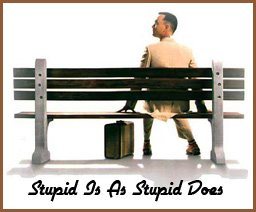In the “Customers Who Bought This Item Also Bought” queue on my Amazon account (where I bought all of the required texts for this class) there was one one modern looking cover among a lot of Locke, Hume and Plato titled The Ego Trick by Julian Baggini. So I googled the book and found a TED Talk by the author addressing the main idea of his book which is basically that our “self” is not a fixed permanent essence or object that has experiences but rather our “self” is just a collection of experiences.
This idea seemed to fit perfectly with what we are learning in class about identity, in fact it seemed like a good unifying capstone for our discussions so far, so I watched the TED Talk. The speaker gives a comprehensive view of identity according to different philosophers including Locke, Hume, Buddha, and even modern psychologists and neuroscientists. He synthesizes ideas from these respective philosophies (though he takes from buddhism more than anything else) and optimistically concludes that identity or our “true self” is a process which is fluid and forever changing like a waterfall, except it is different from a waterfall because we have the capacity to direct our flow and shape ourselves. So according to Baggini the ship of Theseus paradox with regards to identity is a total nonissue because our identities or our “self” is not an object, which we can expect to be the same from one moment in time to another. So according to Baggini’s ideas, whether you undergo a heart transplant or belief transplant, you are still you and it is silly to worry whether these things changed you or made you fundamentally different because change is the very nature of your identity.
According to Baggini, although this easily understood people do not easily make it work in their own consideration of themselves because it is human nature to think of ourselves as a separate, maybe even tangible, being of experience rather than the sum of our experiences. It is human nature to objectify ourselves. Haha. Still, we shouldn’t fret because even if there is no permanent object of self Baggini maintains that we are not completely powerless and that we have the capacity to direct the development of our self.
“The true self, as it were then, is not something that is just there for you to discover. You don’t sort of look into your soul and find your true self. What you are partly doing at least is actually creating your true self” – Julian Baggini

